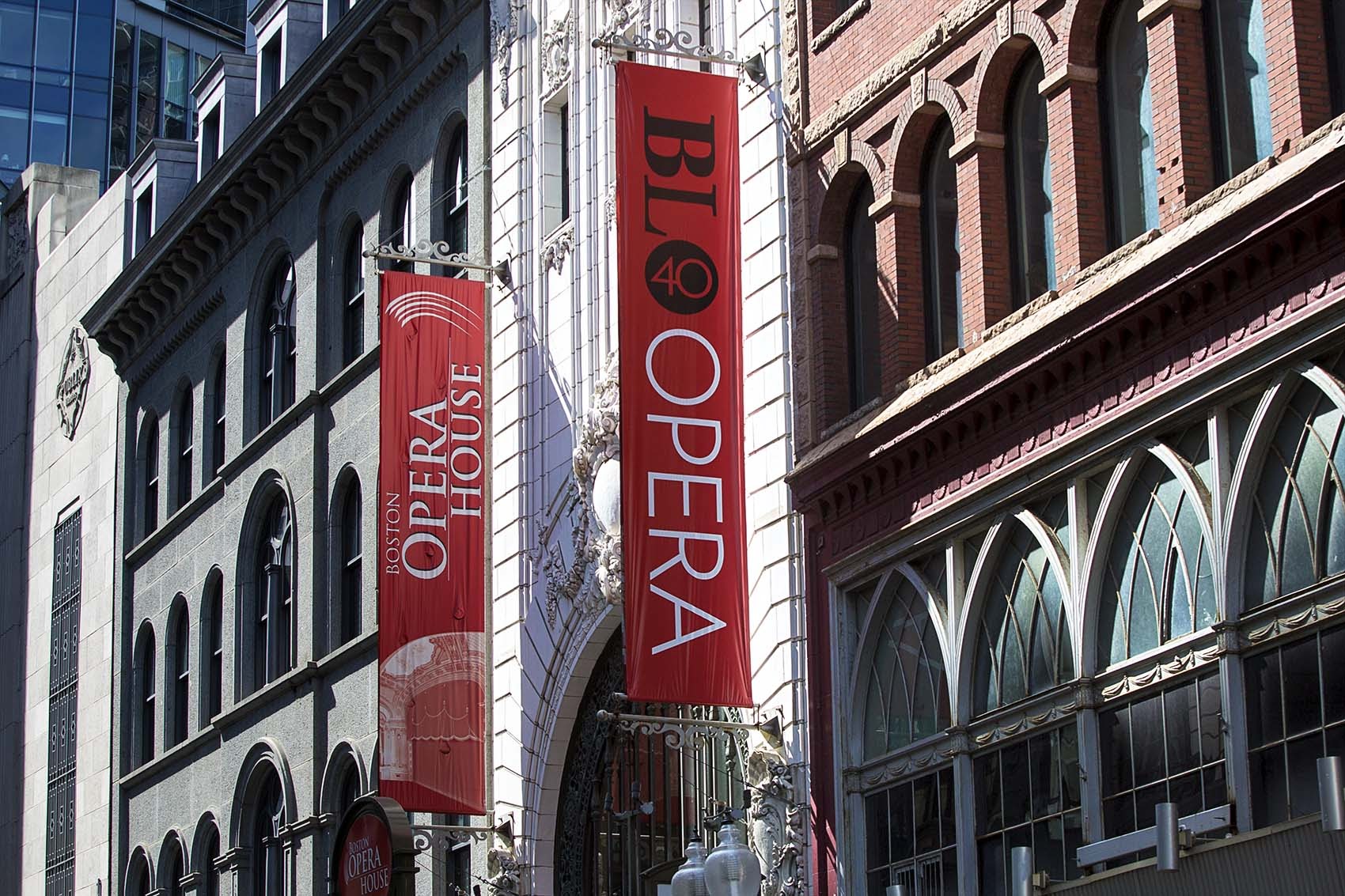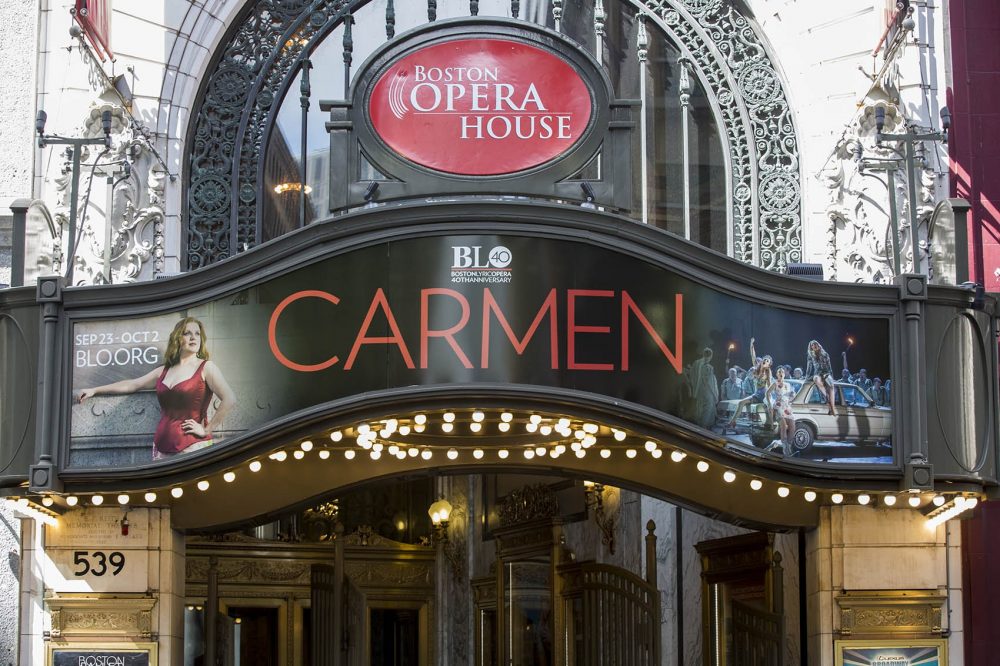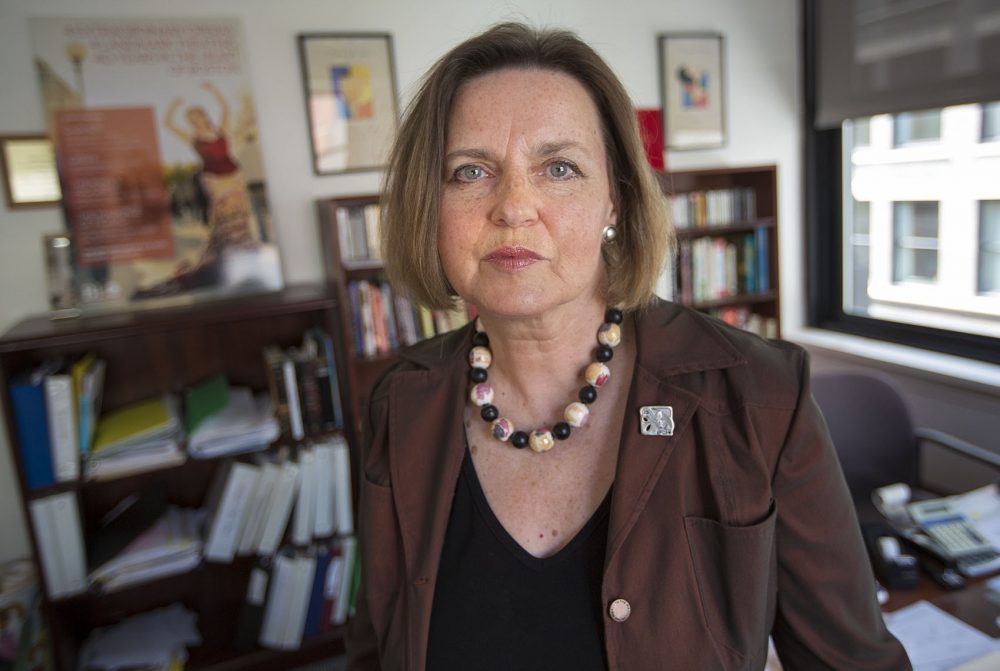Advertisement
Is The Boston Lyric Opera 'At Risk'? It Certainly Doesn't Think So
Resume
One of Boston's biggest cultural institutions is at something of a crossroads. The 41-year-old Boston Lyric Opera is without a home and a recent study commissioned by the city of Boston says that puts the institution "at risk." However, the opera company rejects that assessment, saying it's seen larger audiences as an itinerant group.
The BLO, formed in 1976, is one of the biggest opera companies in Boston. It produces three or four mainstage shows a year. At the height of its season, the company can hire upward of 300 people, from actors to technicians. For the past 18 years, the BLO has been performing at the Shubert Theatre, but in 2015, it left in search of better acoustics and a more cost-effective permanent home. The company also wanted to better market to its audience, something that was impossible at the Shubert because the BLO didn't control the box office and didn't have data on who was buying tickets. It performed in different venues around the city for the 2016-'17 season.
Then this June, the city released its facilities assessment, which surveyed dozens of cultural organizations about their rehearsal and performance space needs. It stated that the BLO itself reported being "at risk" unless it found a permanent home.
"Those were not our words," says Esther Nelson, the BLO's general and artistic director. "But what does 'risk' mean? The risk is that we are not reaching the potential, or can reach our potential, and that our audience is unable to see the potential that we're capable of reaching as demonstrated last season."
Last season — though moving among four different venues — proved to be a highly successful one for the BLO. While subscriptions dropped off — which is in line with industry trends — single ticket sales went up by 32 percent and overall attendance increased, according to the company. It was highest grossing season since 2008, when the country's last recession hit.
There were a lot of unique factors in 2016s season that could have contributed to that success, including buzz around the company's 40th anniversary. The BLO was able to perform "Carmen," in a collaboration with the San Francisco Opera. It also sold out bigger venues, like the Boston Opera House. (But that was only possible since the Opera House booked fewer big Broadway tours. It won’t be able to accommodate the company again this year.) BLO administrators also point out that since they were selling tickets themselves, instead of relying on the Shubert's box office, they were able to do more direct marketing to their patrons.

That growth shows there is a demand for opera in Boston, claims Eileen Williston, the director of external relations at the BLO.
"I don't so much think the growth was related to an anomalous season," she says. "I see it as a direct response growth out of the changes the organization made — the ability to speak directly to our patrons, to sell our single tickets."
But any progress they made could be stymied, not because of a lack of appetite, but because of lack of room to grow, says Nelson.
To that end the BLO is considering a possible space at the Seaport Square development as its future home. However, there's a lot of demand for smaller and medium-sized venues among the city's cultural organizations. Right now, the city and the property's developer are still evaluating what kind of facility will be built there.
"The BLO has engaged in a vigorous campaign for looking at space within the Seaport Square development," says Jonathan Greeley, the director of development review with the Boston Planning and Development Agency. "To folks who are excited about the potential to maybe have a new home there for performance or rehearsal, etc. I would say, 'We hear you and we're looking forward to finding opportunities to do that.' But I'd also say that we're also going be looking around the entire city for ways to do that."
The best bet right now for the Lyric Opera is finding another cultural organization with which it can share a space — and the company is willing to do that. The BLO needs a large space with modern technical amenities, an orchestra pit and backstage quarters that can accommodate dozens of performers. Nelson says that a large modern venue could be built to accommodate opera, then be retrofitted to fit smaller arts groups. (It wouldn't work the other way around, she says.)

Nelson says the BLO has done extensive research on the available theaters in the city, but cost, space and location eliminate all of them from potential homes for the company. While many of those theaters are architectural gems, Nelson envisions a more inclusive space to reflect the values of modern opera.
"Those older theaters are really kind of a holdover of the 19th and early 20th century theater culture," she says. "And let's face it, most of them were white Europeans and it was a system of elitism. That's not the world we live in anymore. We live in an increasingly diversified society. The theater needs to reflect that."
This segment aired on August 11, 2017.
